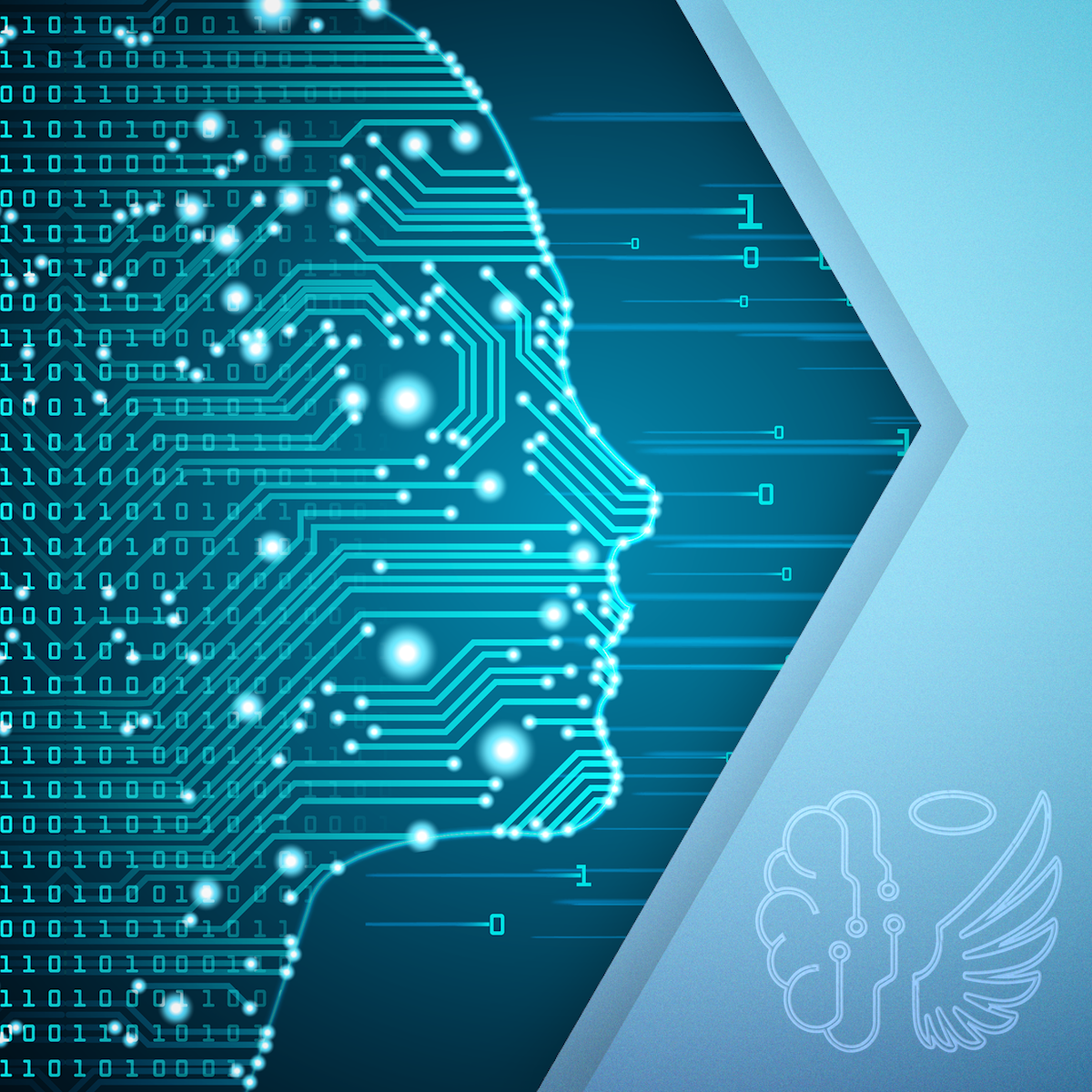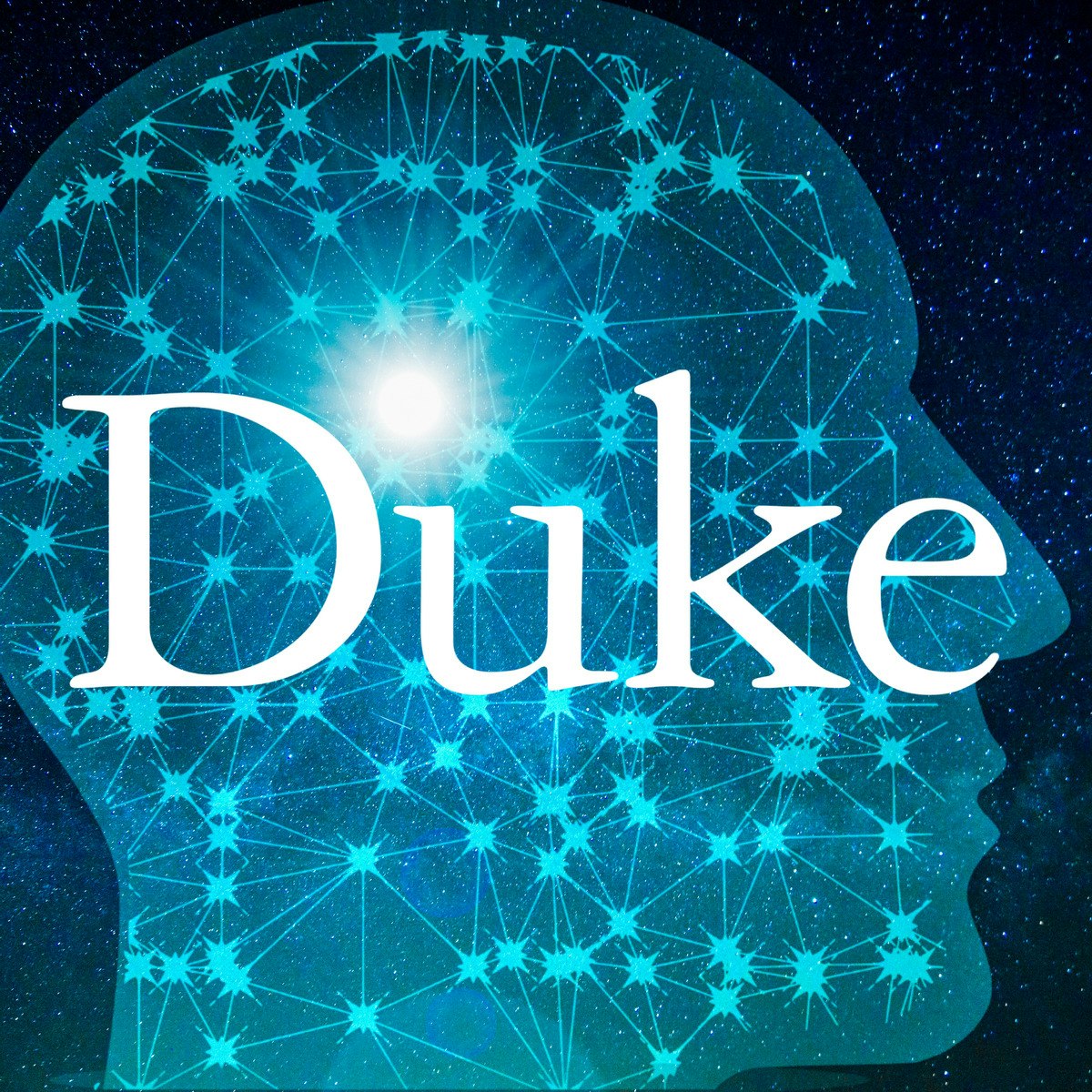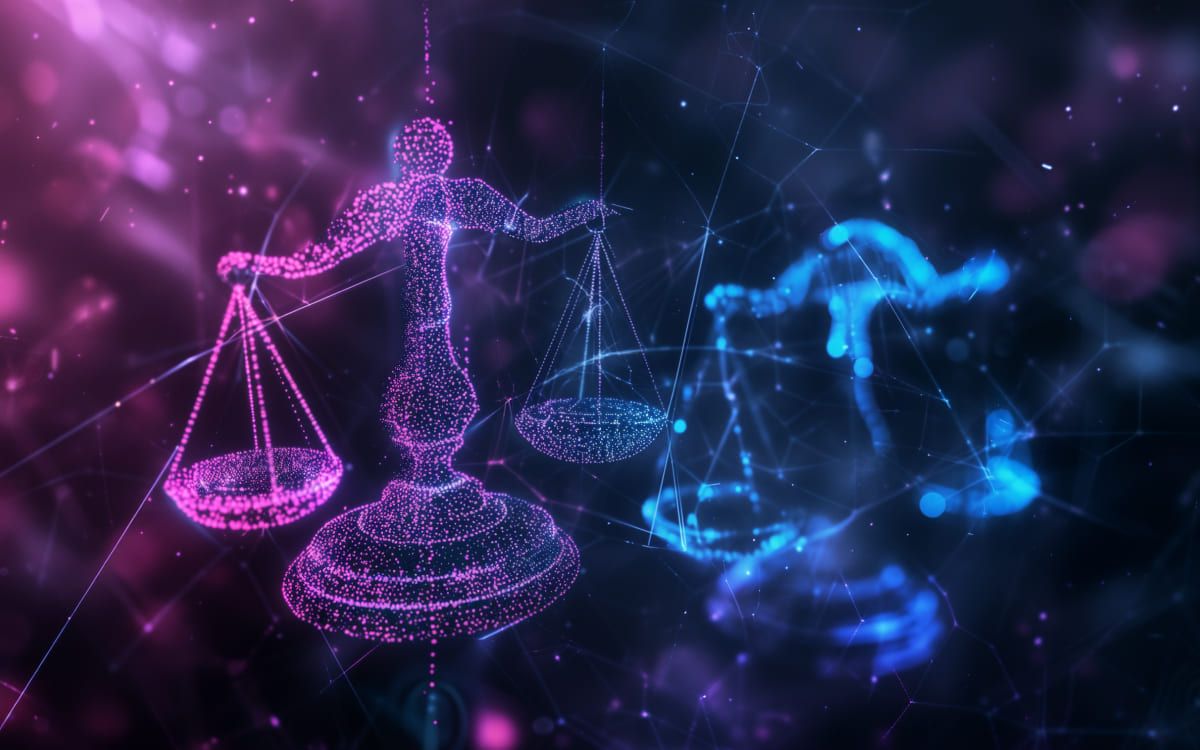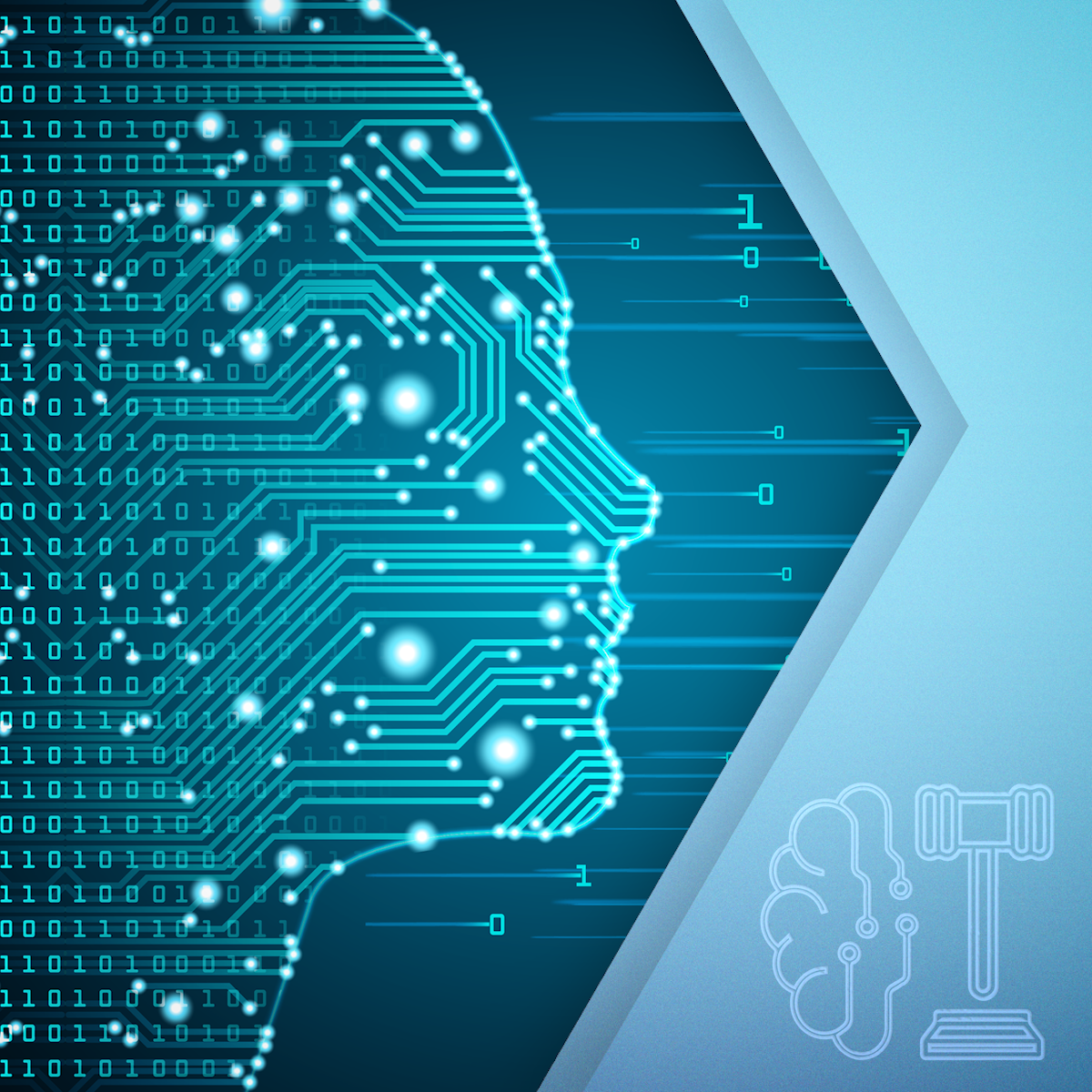AI Ethicist
AI Ethicist: Navigating the Moral Landscape of Artificial Intelligence
An AI Ethicist works at the intersection of technology, philosophy, and social science. Their primary role is to guide the development and deployment of artificial intelligence systems in ways that align with human values and ethical principles. As AI becomes more integrated into our daily lives, from healthcare decisions to financial systems, the need for dedicated professionals focusing on its ethical implications grows rapidly.
This field examines complex questions about fairness, accountability, transparency, and the societal impact of AI. AI Ethicists help organizations anticipate and mitigate potential harms, such as algorithmic bias, privacy violations, or unintended social consequences. It's a challenging but deeply rewarding field for those passionate about shaping technology for the better.
Working as an AI Ethicist offers the chance to influence cutting-edge technology and address some of the most pressing societal challenges of our time. You might find yourself developing guidelines for autonomous vehicles, ensuring fairness in AI-driven hiring tools, or advising policymakers on AI regulation. The role demands critical thinking, interdisciplinary collaboration, and a commitment to promoting responsible innovation.
What is AI Ethics?
Defining the Field
AI Ethics is a branch of applied ethics focused specifically on the moral issues raised by artificial intelligence. It explores the design, development, deployment, and use of AI systems. The goal is to ensure these technologies are created and utilized responsibly, minimizing harm and maximizing benefits for individuals and society.
The scope is broad, covering topics like algorithmic bias, data privacy, accountability when AI systems make mistakes, the transparency of AI decision-making (often called 'explainability'), and the long-term impact of AI on employment and social structures. It draws upon principles from philosophy, law, computer science, sociology, and other disciplines.
At its core, AI ethics asks fundamental questions: What values should we embed in AI systems? Who is responsible when an AI causes harm? How can we ensure AI systems are fair and equitable? How do we govern technologies that evolve rapidly and operate globally?
To understand the fundamentals of AI ethics and its societal challenges, consider exploring introductory courses.
A Brief History
While concerns about intelligent machines date back centuries in philosophy and fiction, the formal field of AI ethics gained momentum alongside advancements in machine learning and AI capabilities in the late 20th and early 21st centuries. Early discussions often focused on existential risks posed by hypothetical superintelligence.
More recently, the focus has shifted towards the tangible, near-term ethical challenges arising from deployed AI systems. High-profile examples of algorithmic bias in facial recognition, loan applications, and predictive policing brought widespread attention to the practical need for ethical oversight.
The proliferation of big data, coupled with powerful algorithms, amplified concerns about privacy, manipulation, and fairness. This led to the development of ethical principles by research institutions, corporations, and governments, signaling the maturation of AI ethics as a distinct field of study and professional practice.
These courses offer perspectives on the philosophical foundations and historical context relevant to AI ethics.
Why AI Ethics Matters Now
AI technologies are no longer confined to research labs; they actively shape our world. They influence news consumption, hiring decisions, medical diagnoses, and even criminal justice outcomes. The potential for both immense benefit and significant harm makes ethical considerations paramount.
Without careful ethical guidance, AI systems can perpetuate and even amplify existing societal biases, leading to discriminatory outcomes. Lack of transparency can erode trust, and failures in accountability can leave victims of AI errors without recourse. Proactive ethical analysis helps prevent these negative consequences.
Furthermore, public trust is essential for the successful adoption of AI. Addressing ethical concerns openly and responsibly builds confidence among users, customers, and the public. Increasingly, regulations like the EU's AI Act mandate ethical considerations, making AI ethics not just a moral imperative but also a legal and business necessity.
Understanding the impact and issues associated with AI is crucial in today's technological landscape.
Key Responsibilities of an AI Ethicist
Detecting and Mitigating Bias
A core responsibility is identifying and addressing algorithmic bias. Bias can creep into AI systems through biased training data, flawed algorithm design, or assumptions made during development. An AI Ethicist analyzes systems to uncover these biases, which might discriminate based on race, gender, age, or other characteristics.
For example, imagine an AI tool used for screening job applications. If trained predominantly on historical data reflecting past hiring biases, the tool might unfairly disadvantage candidates from underrepresented groups. The ethicist's role is to detect such patterns, often using specialized statistical techniques and fairness metrics.
Mitigation involves proposing solutions. This could mean sourcing more diverse data, adjusting the algorithm, implementing post-processing checks, or advising against using the AI for certain sensitive decisions. It requires both technical understanding and a deep awareness of social context.
These courses delve into the specifics of identifying and handling bias in AI.
Developing Ethical Frameworks and Guidelines
AI Ethicists often lead the creation of ethical frameworks, principles, and policies for their organizations. These documents provide concrete guidance for developers, product managers, and other stakeholders on how to build and deploy AI responsibly.
Think of an ethical framework as a constitution for AI development within a company. It might outline core values like fairness, transparency, accountability, privacy, and safety, and then translate these into specific requirements or best practices for different stages of the AI lifecycle.
Developing these frameworks involves research, stakeholder consultation, and translating abstract ethical principles into actionable rules. It requires understanding both the technical possibilities and limitations of AI, as well as the organization's specific context and values. The goal is to create practical tools that embed ethical considerations into everyday workflows.
These resources explore the principles and application of responsible AI frameworks.
Collaborating Across Teams
AI ethics is not a solitary pursuit. Ethicists must work closely with various teams, including engineers, data scientists, product managers, legal experts, and designers. Effective collaboration is key to translating ethical principles into real-world impact.
They act as translators, bridging the gap between technical details and ethical implications. For instance, they might explain to engineers how a specific algorithmic choice could lead to unfair outcomes or work with product managers to design user interfaces that clearly communicate AI limitations.
This requires strong communication, negotiation, and interpersonal skills. Ethicists need to build trust and influence without necessarily having formal authority over technical decisions. They facilitate discussions, raise critical questions, and help teams navigate complex ethical trade-offs.
Understanding human factors and interdisciplinary approaches is vital for this collaborative role.
Policy Advocacy and Education
Beyond internal guidance, AI Ethicists often engage in educating stakeholders and contributing to policy discussions. This can involve training employees on ethical AI practices, communicating the organization's ethical stance to the public, or advising policymakers.
They might develop training materials, conduct workshops, or write white papers explaining complex ethical issues in accessible language. Raising awareness within the organization and among the public is crucial for fostering a culture of responsible AI.
Some AI Ethicists also engage with regulatory bodies and industry consortia, contributing expertise to the development of standards and laws governing AI. This requires staying informed about global policy trends and being able to articulate ethical considerations in a policy context.
These resources cover AI governance, policy, and the broader societal context.
Core Skills and Tools
Technical Foundations
While deep coding expertise isn't always mandatory, a foundational understanding of artificial intelligence and machine learning concepts is essential. AI Ethicists need to grasp how algorithms work, how models are trained, and where potential ethical risks might arise in the technical pipeline.
This includes familiarity with concepts like different types of machine learning (supervised, unsupervised, reinforcement), common model architectures, data preprocessing techniques, and evaluation metrics. Understanding these allows ethicists to engage meaningfully with technical teams and identify potential issues.
Knowledge of tools and techniques specifically for AI bias detection and mitigation, as well as methods for model explainability (XAI), is increasingly valuable. While they might not implement these tools themselves, understanding their capabilities and limitations is key.
These courses provide introductions to AI, machine learning, and explainability.
Philosophical and Ethical Grounding
A strong foundation in ethics, particularly applied ethics and moral philosophy, is fundamental. AI Ethicists must be proficient in various ethical theories (like utilitarianism, deontology, virtue ethics) and frameworks for moral reasoning.
This knowledge enables them to analyze complex situations, identify competing values, and articulate principled arguments for different courses of action. It's not just about knowing right from wrong, but about navigating grey areas where ethical principles might conflict.
Understanding the philosophical debates surrounding consciousness, agency, rights, and responsibility as they relate to AI is also important for addressing deeper, long-term ethical questions. This grounding helps move beyond surface-level compliance towards a more profound engagement with the societal implications of AI.
These resources explore the intersection of philosophy, ethics, and technology.
Communication and Collaboration Skills
As highlighted earlier, AI Ethicists work across disciplines. Therefore, exceptional communication skills – both written and verbal – are crucial. They must be able to explain complex technical and ethical concepts clearly to diverse audiences, from engineers to executives to the public.
Active listening, empathy, and the ability to facilitate constructive dialogue are essential for building consensus and navigating disagreements. Ethicists often act as mediators, helping teams work through difficult ethical trade-offs.
Interdisciplinary collaboration requires understanding the perspectives and priorities of different fields. An ethicist needs to appreciate the constraints faced by engineers, the market pressures felt by product managers, and the compliance requirements emphasized by legal teams, integrating these into a holistic ethical assessment.
Regulatory and Legal Awareness
AI is increasingly subject to regulation. AI Ethicists need a working knowledge of relevant laws and standards, such as data protection regulations (like GDPR), sector-specific rules (e.g., in finance or healthcare), and emerging AI-specific legislation (like the EU AI Act).
This involves staying current with a rapidly evolving legal landscape across different jurisdictions. Understanding these requirements helps ensure that ethical frameworks and AI systems are compliant and helps organizations anticipate future regulatory demands.
While not expected to be legal experts, ethicists should be able to identify potential legal risks associated with AI systems and collaborate effectively with legal counsel. They translate ethical principles into practices that often align with or exceed legal minimums. The OECD AI Policy Observatory provides valuable insights into global AI policies.
This course specifically covers AI Governance and relevant frameworks.
Formal Education Pathways
Relevant Undergraduate Degrees
There isn't one single prescribed undergraduate major for aspiring AI Ethicists, reflecting the interdisciplinary nature of the field. Common backgrounds include Computer Science, Philosophy, Law, Public Policy, Sociology, and Cognitive Science.
A Computer Science degree provides strong technical foundations, while Philosophy offers rigorous training in ethical reasoning and critical analysis. Law and Public Policy degrees equip students with an understanding of governance, regulation, and societal impact assessment.
Regardless of the primary major, students benefit immensely from interdisciplinary coursework. A philosophy major might take introductory programming and data science courses, while a computer science major could benefit from ethics, sociology, or science and technology studies (STS) courses. Building a broad base is key.
Graduate Studies in AI Ethics
As the field matures, specialized graduate programs focusing on AI ethics, responsible AI, or technology policy are emerging. These Master's or PhD programs offer focused curricula combining technical, ethical, social, and policy dimensions.
Such programs provide advanced training in ethical theory, AI governance frameworks, methods for bias detection and fairness assessment, and research methodologies tailored to AI ethics. They offer opportunities to engage deeply with complex issues and contribute to the field's development.
Graduate studies are particularly beneficial for those seeking research-oriented roles, positions in academia, or senior leadership roles in industry or policy. They provide the depth of knowledge and research skills often required for these advanced positions.
Consider courses that bridge technical and ethical domains at a higher level.
PhD Research Areas
For those inclined towards deep academic research, a PhD offers the chance to make significant contributions to the field of AI ethics. Research topics are diverse and constantly evolving, reflecting the dynamic nature of AI.
Potential research areas include developing novel techniques for fairness and bias mitigation, exploring the philosophical underpinnings of AI alignment, investigating the long-term societal impacts of autonomous systems, designing effective governance models for global AI, or studying the psychological effects of human-AI interaction.
A PhD typically involves rigorous coursework followed by several years dedicated to original research culminating in a dissertation. This path is ideal for individuals aiming for careers as university professors, senior researchers in industrial labs, or thought leaders shaping the discourse on AI ethics.
Advanced studies might involve exploring the frontiers of AI and its implications.
The Value of Interdisciplinarity
Across all educational levels, an interdisciplinary approach is highly valuable. AI ethics fundamentally requires bridging different ways of thinking – the analytical rigor of philosophy, the empirical methods of social science, the technical understanding of computer science, and the practical considerations of law and policy.
Students should actively seek opportunities to take courses outside their primary discipline, attend cross-departmental seminars, or participate in interdisciplinary research projects. Building a network that includes people with diverse backgrounds is also beneficial.
Developing the ability to "speak the language" of different fields and integrate insights from multiple perspectives is a core competency for an effective AI Ethicist. Educational pathways that encourage or require this breadth are particularly advantageous.
Explore courses that combine technical understanding with societal or ethical considerations.
Alternative Learning Pathways
Designing Your Self-Study Curriculum
A formal degree isn't the only route into AI ethics. Motivated individuals can forge their own path through dedicated self-study. This requires discipline and careful planning to cover the necessary breadth of knowledge, from technical basics to ethical theories and regulatory landscapes.
Online platforms like OpenCourser offer a vast array of courses covering AI, machine learning, data science, philosophy, ethics, and policy. Learners can curate a personalized curriculum, mixing introductory courses with more specialized ones. Supplementing courses with reading key books and research papers is also crucial.
Creating a structured learning plan, setting achievable milestones, and finding ways to apply knowledge (e.g., through personal projects) can make self-study more effective. OpenCourser's Learner's Guide offers tips on structuring self-learning and staying motivated.
These foundational courses can be excellent starting points for a self-designed curriculum.
Contributing to Projects and Building a Portfolio
Practical experience is invaluable, especially for those without formal credentials in the field. Contributing to open-source projects related to AI fairness, explainability, or privacy can demonstrate skills and commitment. Participating in online communities or forums focused on AI ethics can also provide learning opportunities and connections.
Building a personal portfolio showcasing your work is essential. This could include analyses of AI systems for ethical risks, proposals for ethical guidelines, write-ups of personal projects exploring bias mitigation techniques, or even blog posts discussing current AI ethics issues.
The portfolio serves as tangible evidence of your knowledge and abilities, helping to bridge the gap left by a non-traditional educational background. It demonstrates initiative and practical application of ethical principles to real-world (or simulated) problems.
Certification Programs
Several organizations now offer certifications related to AI ethics, responsible AI, or AI governance. These programs typically involve coursework and an examination, validating a certain level of knowledge in the field.
Certifications like the AI Governance Professional (AIGP) offered by the IAPP can be a valuable credential, particularly for professionals looking to specialize or transition into AI ethics roles. They signal a commitment to the field and provide structured learning on key topics like ethical frameworks, risk management, and regulatory compliance.
While certifications may not fully replace a degree or extensive experience, they can supplement existing qualifications and demonstrate up-to-date knowledge in this rapidly evolving area. Carefully evaluate the reputation and curriculum of any certification program before enrolling.
This course prepares learners for a recognized AI governance certification.
Transitioning from Adjacent Fields
Professionals in related fields like law, policy analysis, social science research, user experience (UX) design, or even software engineering are well-positioned to pivot into AI ethics. These roles often involve relevant skills like critical analysis, stakeholder engagement, policy understanding, or technical familiarity.
Making the transition typically involves acquiring specialized knowledge in AI ethics, perhaps through targeted coursework, self-study, or certifications. Highlighting transferable skills and demonstrating a clear understanding of AI ethics principles is key when seeking roles.
It can be an encouraging path, as your existing expertise brings valuable perspective. A lawyer brings regulatory insight, a sociologist understands societal impacts, and an engineer grasps technical feasibility. The challenge lies in integrating this background with the specific demands of AI ethics. Networking with people already in the field can provide valuable guidance and opportunities.
Consider roles that bridge technology and governance or policy.
Career Progression and Roles
Entry-Level Opportunities
Starting a career in AI ethics might involve roles like AI Ethics Analyst, Responsible AI Researcher, or Junior Policy Advisor. These positions often focus on specific tasks like conducting ethical reviews of AI projects, researching bias mitigation techniques, or helping draft internal guidelines under supervision.
Entry-level roles typically require a relevant Bachelor's or Master's degree, strong analytical skills, and a demonstrable interest in ethical issues surrounding technology. Internships or research assistant positions during studies can provide a crucial stepping stone.
These initial roles provide valuable experience in applying ethical principles in practice, understanding organizational dynamics, and developing specialized knowledge within a particular area of AI ethics (e.g., fairness in machine learning, data privacy).
Mid-Career Trajectories
With experience, AI Ethicists can progress to roles like Lead AI Ethicist, Ethics Program Manager, or Senior Responsible AI Specialist. These positions often involve greater autonomy, strategic planning, and team leadership responsibilities.
Mid-career professionals might be responsible for designing and implementing organization-wide ethics programs, leading complex ethical assessments, advising senior leadership, managing a team of analysts, or representing the organization in external forums.
This stage often requires deeper expertise in specific domains (e.g., healthcare AI ethics, financial services AI ethics) and proven ability to influence decision-making and drive change within an organization. Strong project management and communication skills are essential.
Relevant adjacent careers can inform mid-career moves.
Executive and Leadership Roles
At the highest levels, experienced AI Ethicists may reach executive positions such as Chief Ethics Officer, Head of Responsible AI, or Director of AI Governance. These roles involve setting the overall ethical strategy for the organization and ensuring accountability at the leadership level.
Executives in this space oversee large programs, shape corporate culture around ethical AI, engage with board members and external regulators, and contribute to the public discourse on AI ethics. They play a critical role in integrating ethical considerations into the core business strategy.
Reaching this level typically requires extensive experience, deep expertise, strong leadership qualities, and a proven track record of impactful work in AI ethics. It represents the culmination of a career dedicated to navigating the complex ethical landscape of artificial intelligence.
Consultancy and Policy Roles
Beyond working within a single organization, experienced AI Ethicists can pursue careers in consultancy or policy-making. Consultants advise multiple clients across various industries on their AI ethics strategies, frameworks, and compliance efforts.
Policy roles involve working for government agencies, international organizations (like the UN or OECD), or non-profits to shape regulations, standards, and public initiatives related to AI. This path allows ethicists to influence the broader ecosystem and address systemic ethical challenges.
Both consultancy and policy work require strong analytical skills, excellent communication abilities, and a broad understanding of the AI landscape across different sectors and regions. They offer opportunities to tackle diverse ethical problems and contribute to shaping the future of AI governance.
Ethical Challenges Unique to AI Ethicists
Balancing Innovation and Risk
A central challenge for AI Ethicists is navigating the inherent tension between fostering technological innovation and mitigating potential risks. AI development often moves rapidly, and overly restrictive ethical constraints could stifle progress, while insufficient oversight could lead to significant harm.
Ethicists must find pragmatic ways to embed ethical considerations without unduly hindering development cycles. This requires careful judgment, understanding the potential benefits and risks of specific AI applications, and facilitating constructive dialogue between development teams and oversight functions.
It involves promoting a culture where ethical reflection is seen not as a roadblock, but as an integral part of responsible innovation. Finding this balance requires ongoing negotiation and a nuanced understanding of both the technology and its potential impacts.
Global vs. Local Ethical Standards
AI systems are often developed and deployed globally, but ethical norms and values can vary significantly across cultures and regions. AI Ethicists face the challenge of developing guidelines and systems that respect this diversity while upholding fundamental human rights.
What constitutes "fairness" or "privacy" might be interpreted differently in different societal contexts. Ethicists must grapple with questions like whether to apply a single universal standard or adapt ethical approaches to local contexts, and how to do so consistently and transparently.
This requires cultural sensitivity, awareness of international legal frameworks, and engagement with diverse stakeholders globally. It adds a layer of complexity to developing ethical frameworks that are both principled and practically applicable worldwide.
Navigating Dissent and Whistleblowing
AI Ethicists may sometimes find themselves in disagreement with organizational decisions or practices they deem unethical. This can lead to difficult situations requiring careful navigation, advocacy, and potentially, escalation.
Knowing when and how to raise concerns effectively, build coalitions for change, and document issues appropriately is a critical, albeit challenging, part of the role. In rare cases, ethicists might face situations that warrant whistleblowing, which carries significant personal and professional risks.
Organizations with mature ethics programs often provide channels for raising concerns, but the ethicist's role can still involve advocating for positions that challenge prevailing business interests or technical approaches. This requires courage, integrity, and strong ethical conviction.
Measuring Long-Term Societal Impact
Assessing the immediate ethical risks of an AI system is challenging enough; predicting and measuring its long-term societal consequences is even harder. AI Ethicists grapple with understanding how AI might reshape labor markets, social interactions, political discourse, or even human cognition over time.
This requires looking beyond individual algorithms or products to consider systemic effects. Methodologies for long-term impact assessment are still developing, making this a frontier area within AI ethics.
Ethicists must engage with research from sociology, economics, and future studies to inform their analyses and advise organizations on mitigating potential large-scale, long-term harms. It involves thinking proactively about the kind of future we want to build with AI.
These books explore the broader societal and future implications of AI.
AI Ethicist in Industry Applications
Sector-Specific Considerations
The ethical challenges posed by AI vary significantly depending on the industry. In healthcare, issues of patient safety, data privacy, diagnostic accuracy, and equity of access are paramount. In finance, fairness in lending, algorithmic trading transparency, and fraud detection ethics are key concerns.
AI in autonomous vehicles raises complex questions about safety, liability, and decision-making in unavoidable accident scenarios. In criminal justice, concerns focus on bias in predictive policing or sentencing algorithms. Social media platforms grapple with content moderation, algorithmic amplification, and user manipulation.
AI Ethicists often specialize in a particular sector, developing deep domain expertise to understand the specific risks and contexts. Tailoring ethical frameworks and assessment methods to the unique challenges of each industry is crucial for effective oversight.
Organizational Context: Startup vs. Corporate vs. Government
The role and influence of an AI Ethicist can differ based on the type of organization. In startups, ethicists might be deeply embedded in product development, working closely with small teams, but potentially facing resource constraints and pressure for rapid growth.
In large corporations, established ethics programs may exist, offering more structure and resources, but potentially involving more bureaucracy and challenges in influencing large, complex organizations. Ethicists might focus on governance, compliance, and scaling ethical practices across diverse business units.
Government roles often focus on policy development, regulation, and ensuring ethical use of AI in public services. Non-profits and research institutions might prioritize advocacy, public education, and foundational research on AI ethics. Each context presents unique opportunities and challenges.
Quantifying the Value of Ethics
In business settings, AI Ethicists often need to articulate the value of ethical practices in terms that resonate with organizational goals. While ethics is intrinsically valuable, demonstrating its connection to business outcomes can strengthen its importance.
This might involve highlighting how responsible AI builds customer trust, enhances brand reputation, mitigates legal and regulatory risks, attracts talent, and can even lead to more robust and reliable products. Some organizations are exploring metrics for "ethical ROI" (Return on Investment).
Framing ethics not just as a cost center or compliance hurdle, but as a source of long-term value and competitive advantage, can help secure resources and buy-in for ethics initiatives. Reports from consulting firms like McKinsey often explore the business implications of responsible AI adoption.
Learning from Case Studies
Analyzing real-world examples of both ethical failures and successes in AI deployment provides invaluable lessons. Case studies illustrate how ethical risks manifest in practice and highlight the consequences of neglecting ethical considerations.
Examples like biased facial recognition systems disproportionately failing on certain demographics, or discriminatory automated hiring tools, serve as cautionary tales. Conversely, examples of companies proactively addressing bias or designing transparent AI systems offer positive models.
AI Ethicists use case studies in training, risk assessments, and policy development to make abstract ethical principles concrete and relatable. Learning from past mistakes and successes helps refine ethical frameworks and anticipate future challenges.
Future Trends Affecting AI Ethicists
Automation in Ethical AI
As the field matures, tools are being developed to automate aspects of ethical AI assessment. This includes software for detecting certain types of bias in datasets or models, tools for enhancing model explainability, and platforms for managing AI governance workflows.
While automation can increase efficiency and scale ethical oversight, it's unlikely to replace human judgment entirely. Ethical decision-making often involves context, nuance, and value trade-offs that algorithms struggle to capture. The role of the AI Ethicist may evolve towards overseeing these tools, interpreting their outputs, and handling the more complex, context-dependent ethical questions.
Understanding the capabilities and limitations of these emerging tools will be increasingly important for AI Ethicists.
Courses on explainable AI touch upon relevant techniques.
Evolving Regulatory Landscape
The global regulatory environment for AI is highly dynamic. New laws, standards, and guidelines are continually being proposed and implemented around the world. Staying abreast of these developments is a critical ongoing task for AI Ethicists.
Major legislative efforts like the EU AI Act, along with national strategies and sector-specific regulations, will significantly shape the requirements for AI development and deployment. Ethicists will play a key role in helping organizations understand, interpret, and comply with these evolving rules.
This trend underscores the importance of legal and policy knowledge within the field and may lead to increased demand for ethicists with expertise in regulatory compliance and AI governance. Resources like the Brookings Institution's AI initiative track key policy developments.
AI Safety and Ethics Convergence
The fields of AI ethics and AI safety, while distinct, share significant overlap and are increasingly converging. AI safety traditionally focused on preventing large-scale accidents or existential risks from advanced AI, while AI ethics focused more on near-term fairness, bias, and accountability.
However, issues like model robustness, reliability, and predictability are relevant to both safety and ethical considerations (e.g., ensuring an AI system behaves as intended and doesn't produce harmful outputs). There's growing recognition that building safe AI requires addressing ethical concerns, and vice versa.
Future AI Ethicists may need a broader understanding encompassing both traditional ethical issues and technical safety concepts, particularly as AI systems become more autonomous and capable.
Books exploring long-term AI futures touch upon these themes.
New Tools for Impact Assessment
Methodologies for assessing the ethical and societal impact of AI systems are becoming more sophisticated. Tools like Algorithmic Impact Assessments (AIAs), ethics audits, and structured frameworks for evaluating fairness, transparency, and accountability are being developed and refined.
AI Ethicists will increasingly utilize these tools to conduct thorough, systematic reviews of AI projects. Proficiency in applying these methodologies and interpreting their results will be a key skill.
The development of better tools and standardized processes aims to make ethical assessment more rigorous, consistent, and integrated into the AI development lifecycle. This trend reflects the professionalization of the field and the move towards more formalized approaches to AI ethics.
This course covers impact assessments related to fundamental rights.
Frequently Asked Questions
Question: Is AI ethics a stable, long-term career path?
Answer: While the field is relatively new, the increasing integration of AI across all sectors suggests a growing and sustained need for expertise in AI ethics. As AI capabilities advance and regulations evolve, the demand for professionals who can navigate the complex ethical landscape is likely to increase. While specific job titles might change, the underlying function of ensuring responsible AI development and deployment appears to have strong long-term prospects.
Question: Can engineers or data scientists transition into AI ethics without formal ethics training?
Answer: Yes, transitioning is possible, but it requires effort. Technical professionals bring valuable understanding of how AI systems work. However, they need to actively acquire knowledge in ethical theories, social implications, policy contexts, and frameworks for ethical analysis. This can be achieved through self-study, targeted online courses, certifications, or even graduate studies. Demonstrating this acquired ethical competency, alongside technical skills, is crucial for a successful transition.
Question: What are the typical salary ranges for AI Ethicists?
Answer: Salary ranges can vary widely based on factors like experience, education level, geographic location, industry, and the specific role (e.g., analyst vs. manager vs. chief ethics officer). As a specialized field requiring interdisciplinary skills, salaries are often competitive, potentially aligning with those in related tech roles like data science or policy analysis. Researching salary data on platforms like LinkedIn, Glassdoor, or specialized tech salary surveys for roles like "Responsible AI Manager" or "AI Policy Analyst" in your region can provide more specific insights.
Question: How should an AI Ethicist handle ethical disagreements with their employer?
Answer: Handling disagreements requires professionalism, clear communication, and principled reasoning. Start by clearly articulating the ethical concern, supported by evidence and ethical principles. Seek dialogue and aim for constructive solutions. Utilize internal channels for raising concerns if available. Documenting the issue and discussions is important. If disagreement persists on a critical ethical matter, escalation might be necessary, following established organizational procedures. In extreme cases, it might involve consulting external resources or, as a last resort, considering resignation or whistleblowing, fully aware of the potential consequences.
Question: How valuable are certifications compared to formal degrees in AI ethics?
Answer: Both have value, but serve different purposes. Formal degrees (especially graduate degrees) provide deep, broad foundational knowledge and research skills, often preferred for research or senior roles. Certifications typically offer more focused, practical training on specific frameworks, tools, or regulations (like the AIGP). They can be excellent for demonstrating specialized knowledge, upskilling, or complementing an existing degree from a related field. The relative value depends on the specific role and employer preferences; often, a combination of education, practical experience, and potentially certification is ideal.
Question: How do AI Ethicists balance ethical ideals with business constraints?
Answer: This is a central challenge. It involves pragmatism and finding solutions that uphold core ethical principles while being feasible within business realities (like budgets, timelines, market pressures). It's not always about achieving a perfect ethical outcome, but about making the most ethically sound decision possible under the circumstances. This requires prioritizing risks, identifying non-negotiable ethical red lines, clearly communicating trade-offs, and advocating for solutions that minimize harm and align with long-term value creation, including building trust and mitigating risks.
The path to becoming an AI Ethicist is multifaceted, requiring a blend of technical understanding, ethical reasoning, and strong communication skills. It's a demanding but vital role in shaping a future where technology serves humanity responsibly. Whether you are starting your educational journey, considering a career pivot, or seeking to deepen your expertise, resources like OpenCourser's AI section can help you find the learning materials needed to navigate this exciting and impactful field.



















